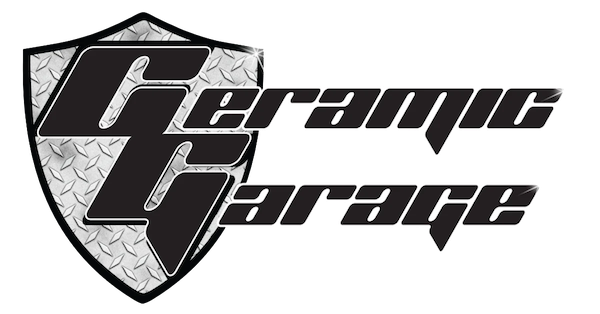In the world of driving, clarity is crucial. Imagine navigating through heavy rain or thick fog with a windshield that’s not up to par—it’s risky. That’s where glass coatings come in, offering a solution to enhance your windshield’s performance and keep your vision crystal clear in all conditions.
This guide will delve into glass coatings, exploring their types, benefits, application process, and more. Whether you want to improve visibility in rainy weather or protect your windshield from UV rays, understanding glass coatings is critical to maintaining a clear view of the road ahead.
Understanding Glass Coating
Understanding glass coatings involves grasping their fundamental purpose and function. Glass coatings are specialized layers applied to surfaces to enhance their properties, such as water repellency, clarity, and durability.
These coatings can be hydrophobic, repelling water to improve visibility during rain, or hydrophilic, promoting water sheeting for better clarity. Anti-fog coatings prevent fogging on the windshield, ensuring clear vision in various weather conditions.
Additionally, UV protection coatings shield against harmful UV rays, reducing glare and protecting the interior from sun damage. Understanding these coating types and their benefits is crucial in selecting the right solution for maintaining a clean and safe windshield.
Benefits Of Glass Coating For Windshields
Glass coatings offer several benefits for windshields, enhancing both visibility and longevity. These coatings improve clarity in weather conditions, such as rain and fog, by repelling water and reducing glare. They also offer protection against harmful UV rays, which helps maintain the clarity of the windshield and protects the interior of the vehicle from sun damage.
Additionally, glass coatings make cleaning easier by repelling dirt and debris, leading to a more precise and durable windshield. These benefits contribute to safer driving conditions and a more comfortable driving experience.
Improved Visibility In Various Weather Conditions
Improved visibility in various weather conditions is one of the critical benefits of glass coatings for windshields. These coatings, mainly hydrophobic and hydrophilic varieties, help repel water and promote water sheeting, reducing the accumulation of raindrops and enhancing visibility during rainy conditions.
Additionally, anti-fog coatings prevent fogging on the windshield, ensuring clear visibility even in humid or cold weather. This improved visibility enhances driving safety and reduces the need for frequent windshield wiper usage, contributing to a more comfortable and focused driving experience.
Easy Maintenance And Cleaning Due To Water And Dirt-Repellent Properties
- Water beads up and rolls off the windshield, reducing the need for frequent wiping and cleaning.
- Dirt and grime are less likely to stick to the coated surface, making cleaning easier with water or a mild detergent.
- The repellent properties help maintain a clear view even in rainy or muddy conditions.
- Regular maintenance involves wiping the windshield with a soft cloth or sponge to remove dust and debris.
- The coating’s durability reduces the frequency of reapplication, saving time and effort in long-term maintenance.
- The smooth, repellent surface minimizes hard water spots and stains buildup, requiring less intensive cleaning.
Types Of Glass Coatings Available For Windshields
Hydrophobic Coatings
Hydrophobic coatings are designed to repel water from the surface of the windshield, improving visibility in rainy conditions. These coatings create a water-repellent barrier that causes water droplets to bead up and roll off the glass rather than sticking and obstructing the view. Hydrophobic coatings help maintain a clear windshield by reducing water buildup and enhancing driving safety. They also make removing dirt, bugs, and other debris easier, as they are less likely to adhere to the glass surface.
Hydrophilic Coatings
Hydrophilic coatings are designed to attract water molecules, causing them to spread evenly across the surface of the windshield instead of forming droplets. This property enhances water sheeting, which improves visibility by reducing the distortion caused by water droplets on the glass.
By promoting the even spread of water, hydrophilic coatings help maintain a more transparent view during rainy conditions, allowing drivers to see more clearly and react faster to potential hazards on the road. These coatings are particularly beneficial for areas with frequent rain or high humidity, as they can significantly enhance driving safety and comfort in such conditions.
Anti-Fog Coatings
Anti-fog coatings, including windshields, are specially designed to prevent fogging on glass surfaces. These coatings work by altering the surface tension of the glass, which reduces the ability of water droplets to form and adhere to the surface. By minimizing fog formation, anti-fog coatings ensure clearer visibility, especially in humid or cold conditions where fogging is common.
This feature is particularly beneficial for drivers, as it helps maintain a clear view of the road ahead, improving safety and driving confidence. Anti-fog coatings are often used with other glass coatings to provide comprehensive protection and performance enhancements for windshields. 
UV Protection Coatings
UV protection coatings are designed to protect your windshield from the harmful effects of ultraviolet (UV) rays. These coatings are a barrier, blocking UV radiation from entering your vehicle’s interior. Doing so helps prevent damage to your dashboard, upholstery, and other interior surfaces that can occur due to prolonged exposure to UV rays. UV protection coatings can also reduce glare, making it easier and safer to drive, especially in bright sunlight. They are a valuable addition to your windshield care routine, offering aesthetic and functional benefits.
Application Process
The application process for glass coatings on windshields involves several vital steps to ensure optimal performance and longevity. Before applying the coating, it is crucial to thoroughly clean the windshield to remove any dirt, dust, or residue that could interfere with the bonding process. This typically involves using a glass cleaner and ensuring the surface is completely dry before proceeding.
Once the windshield is clean, the coating can be applied using a suitable applicator, following the manufacturer’s instructions carefully. Some coatings may require multiple layers for maximum effectiveness. After application, it is essential to allow the coating to cure for the specified time before exposing it to water or other elements. Professional application services are also available for those who prefer expert assistance or want to ensure a flawless finish.
Importance Of Proper Cleaning And Preparation Before Application
Proper cleaning and preparation before applying a glass coating are crucial to ensure its effectiveness and longevity. The windshield surface must be thoroughly cleaned to remove any dirt, debris, or previous coatings that could interfere with the new coating’s adhesion. Any residue left on the windshield can create uneven spots or bubbles in the coating, affecting its performance.
Also, proper preparation includes ensuring the windshield is completely dry and free from moisture, which can also impact the coating’s ability to adhere properly. By cleaning and preparing the windshield correctly, you can maximize the effectiveness of the glass coating and ensure it provides long-lasting clarity and protection.
Maintenance And Longevity
Maintenance and longevity are crucial aspects of glass coatings for windshields. Proper maintenance, such as regular cleaning with mild detergent and water, helps preserve the coating’s effectiveness. Avoiding harsh chemicals and abrasive materials during cleaning is essential to prevent damage to the coating. The longevity of a glass coating depends on various factors, including the coating type, the application quality, and environmental conditions.
While some coatings may last several years with proper care, others may require more frequent reapplication. Factors such as exposure to sunlight, extreme temperatures, and harsh weather can also affect the durability of the coating. As the manufacturer recommends, regular inspections and reapplications can help maintain optimal performance over time.
- Regularly clean the windshield using a mild detergent and soft cloth to remove dirt and debris that can degrade the coating over time.
- Avoid using abrasive cleaners or tools that can scratch the coating, compromising its effectiveness.
- Inspect the windshield regularly for any signs of damage or wear on the coating, such as fading or peeling, and address any issues promptly.
- Consider reapplying the glass coating, as the manufacturer recommends maintaining its protective properties, especially after significant wear or damage.
- Park in shaded areas or use windshield sunshades to minimize exposure to harsh sunlight, which can degrade the coating over time.
- Avoid using harsh chemicals or cleaners on the windshield that can strip away the protective coating.
Considerations For Choosing A Glass Coating
When choosing a glass coating for your windshield, several key considerations can help you make the right decision:
- Consider the compatibility of the coating with your windshield material. Some coatings may be designed specifically for certain types of glass, so choosing one suitable for your windshield is essential.
- Look for a coating that offers durability and longevity. You’ll want a coating that can withstand the rigors of daily driving and maintain its effectiveness over time.
- Consider the performance of the coating in different weather conditions. A coating that performs well in rainy and sunny conditions can provide year-round benefits.
- Evaluate the ease of application and maintenance of the coating.
Depending on your preference and expertise, you may opt for a DIY application or seek professional assistance. Choosing a glass coating that meets these considerations can help ensure you get the best results for your windshield.
Conclusion
Glass coating for windshields offers a revolutionary solution to enhance visibility and protect your vehicle’s glass surfaces. A durable and transparent layer provides long-lasting protection against environmental elements, such as UV rays, dirt, and water, while maintaining crystal-clear vision.
With its hydrophobic and self-cleaning properties, glass coating reduces the need for frequent cleaning and ensures a safer driving experience in various weather conditions. Investing in glass coating not only preserves the aesthetic appeal of your vehicle but also contributes to your safety on the road. Experience the benefits of glass coating and enjoy a more transparent, safer, and more enjoyable driving experience. Contact us now.



